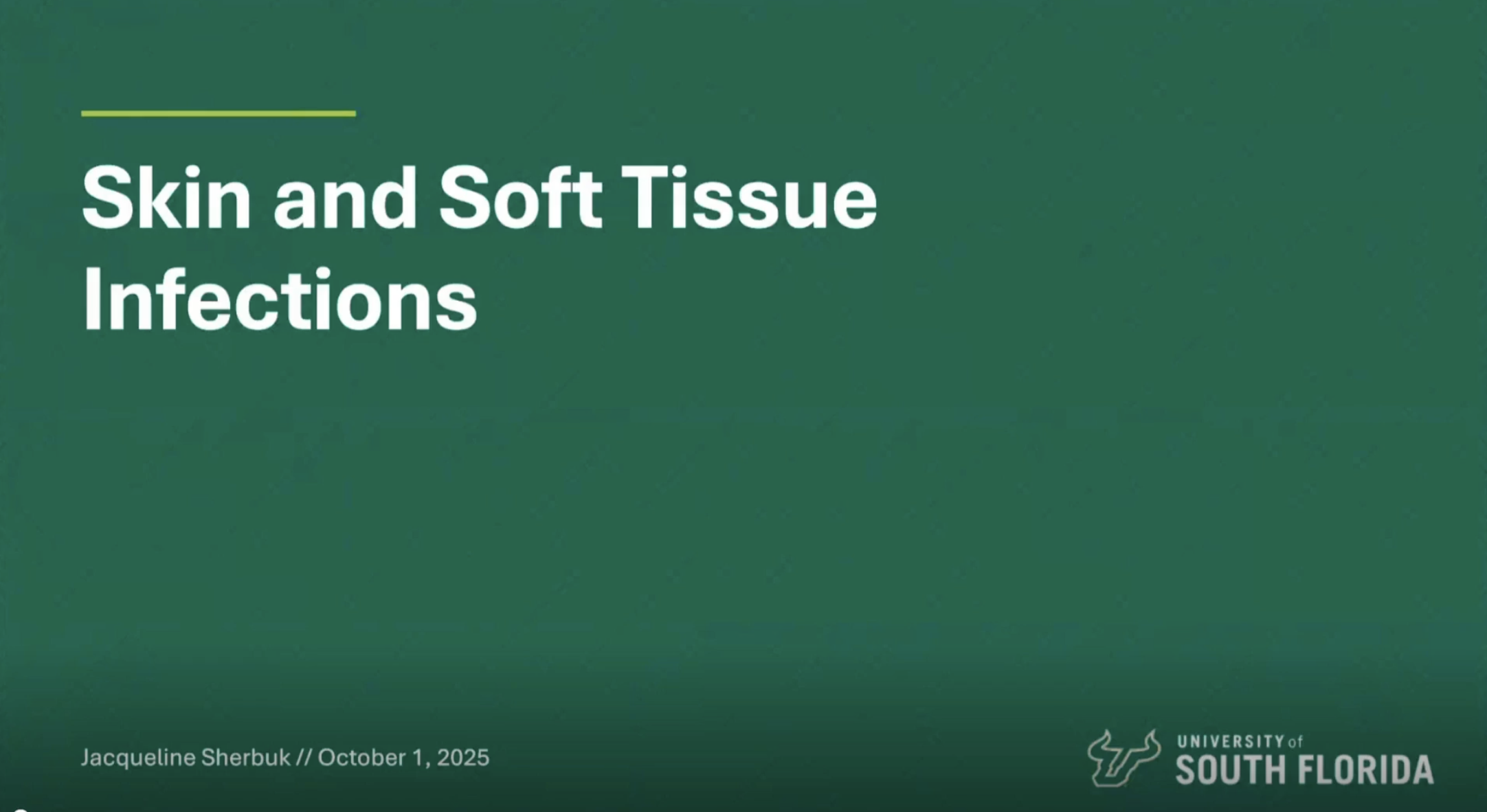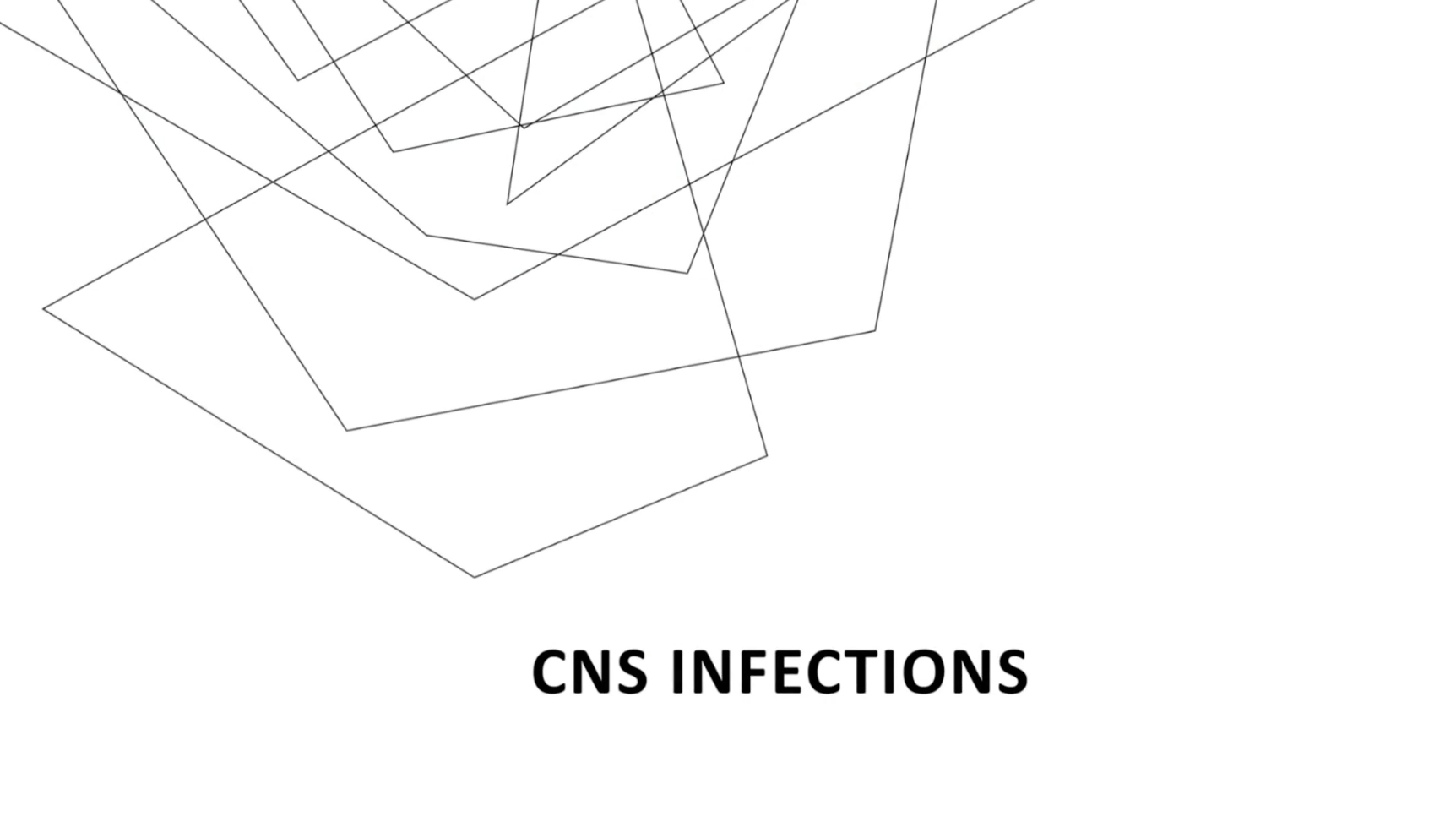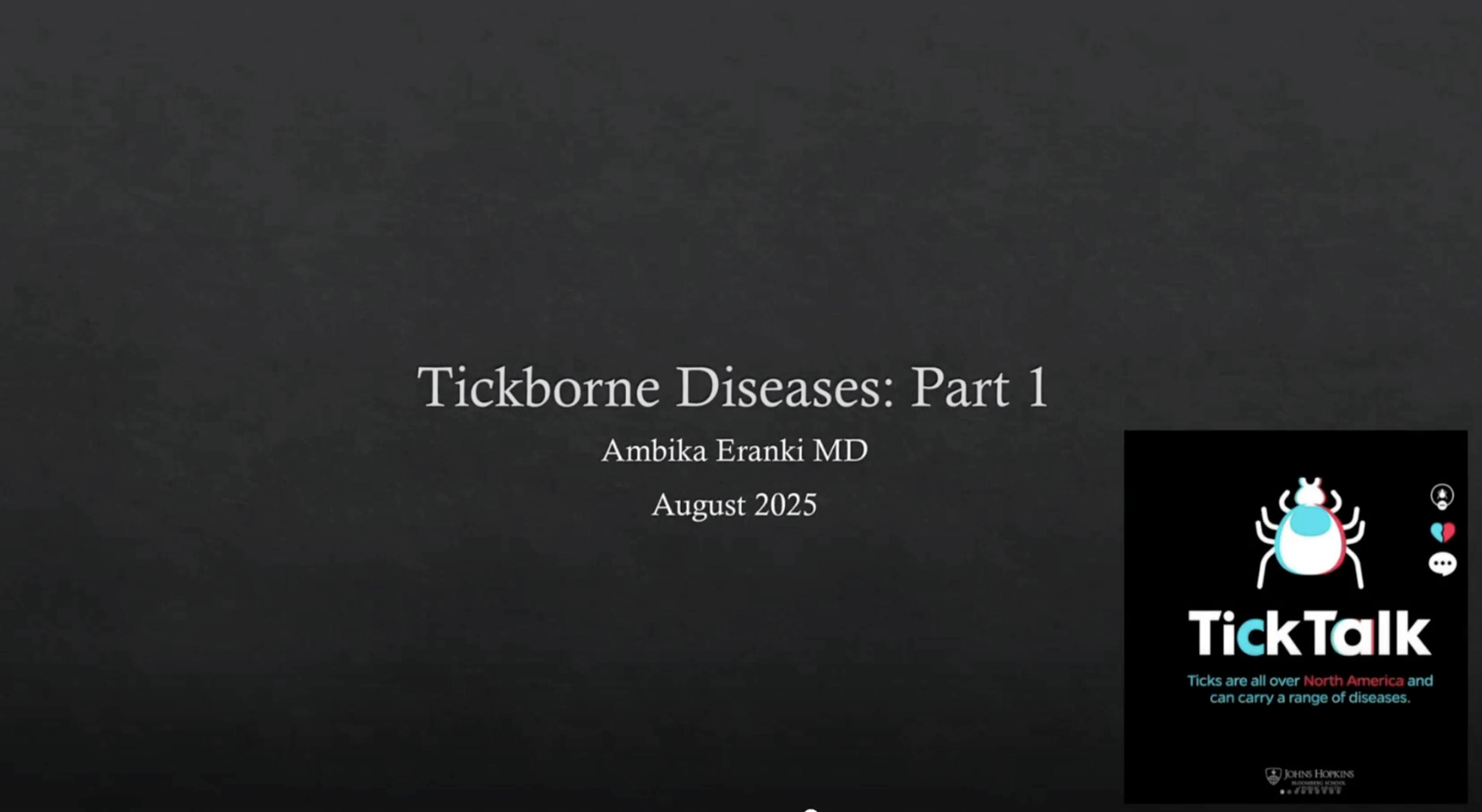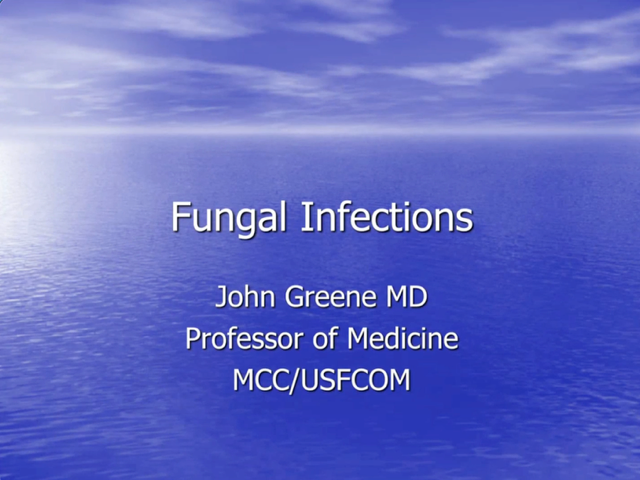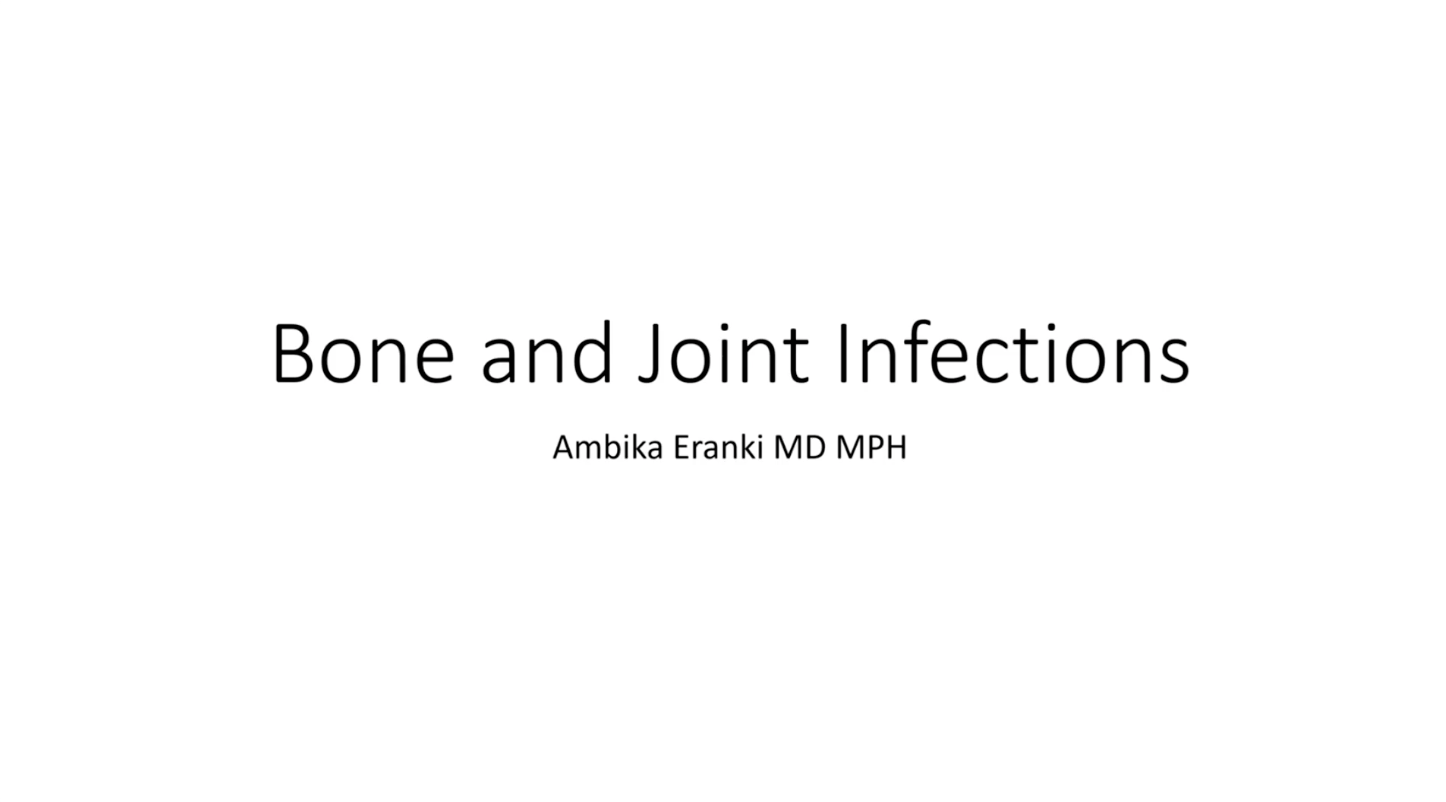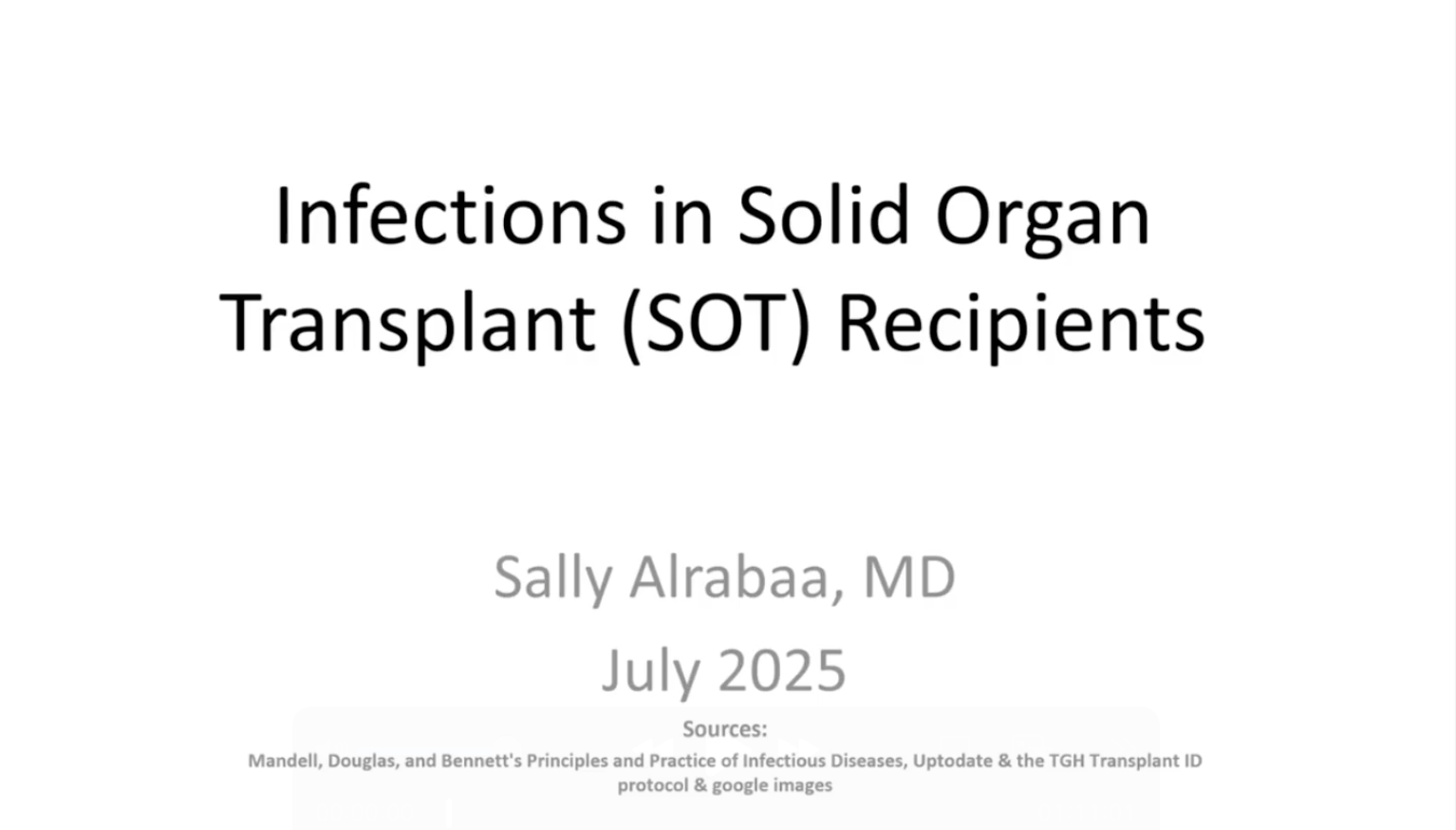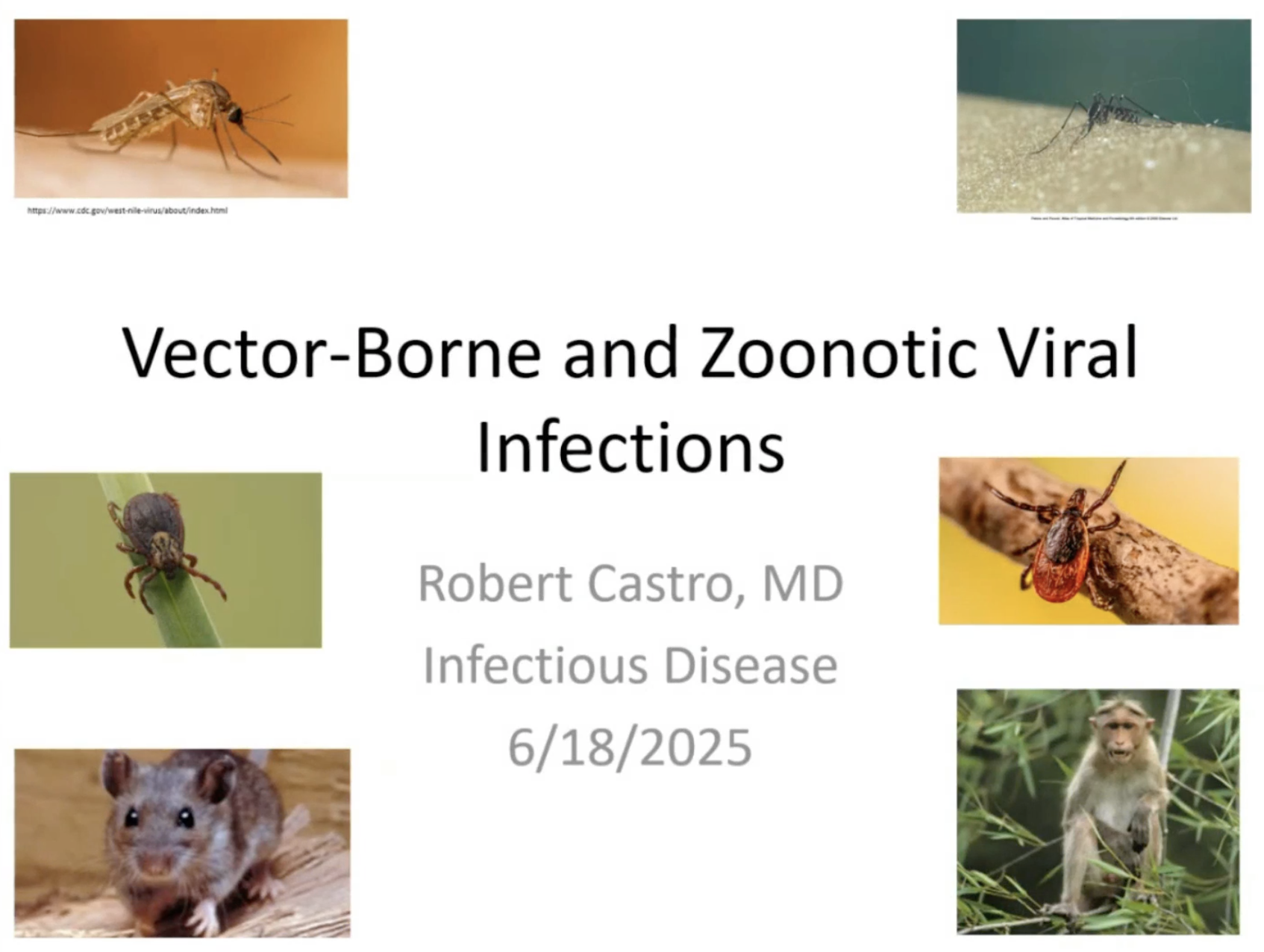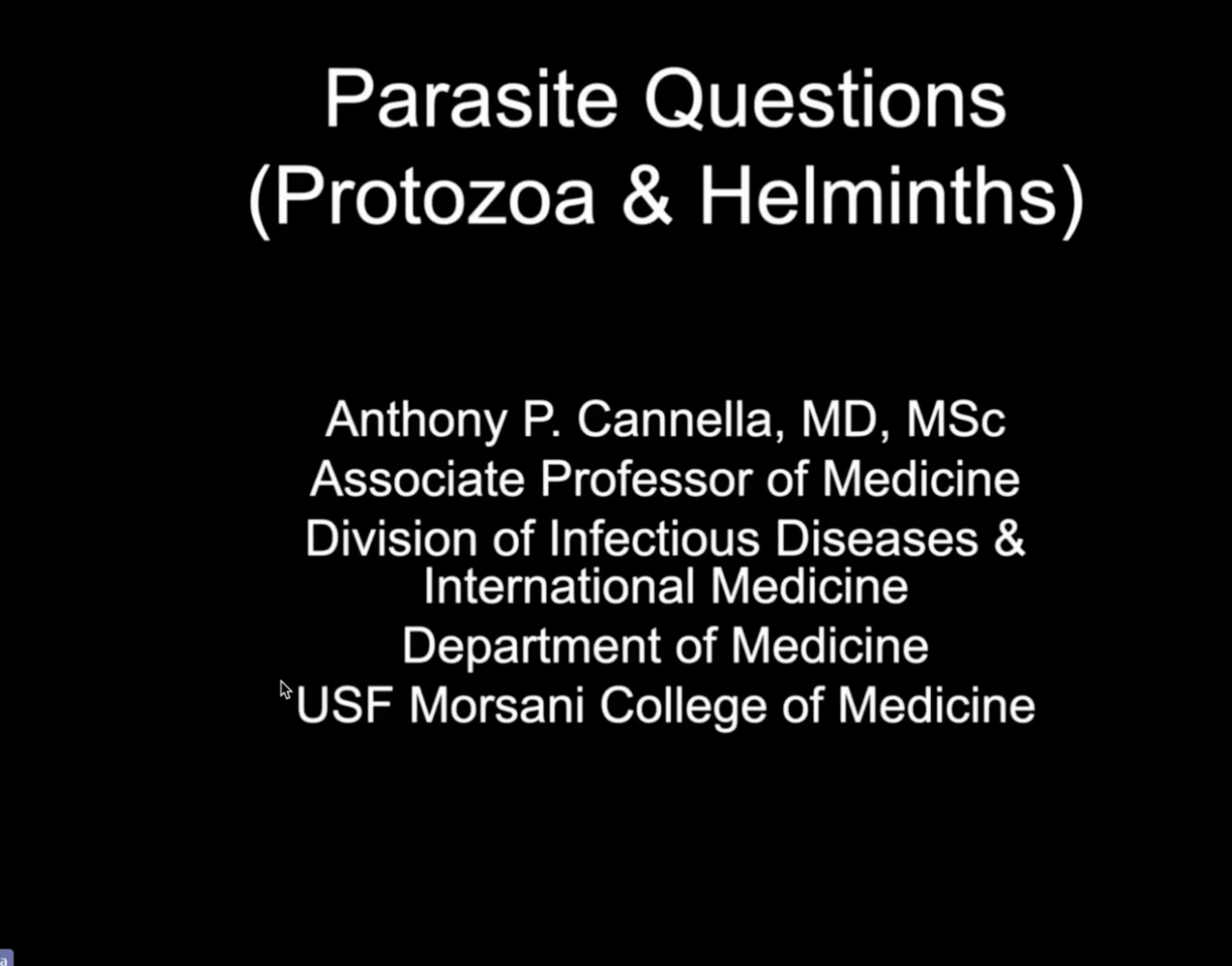Dr. Jackie Sherbuk, Assistant Professor of Medicine with the USF Morsani College of Medicine, presents an interactive session regarding infections of the skin and soft tissues. Topics discussed include impetigo, folliculitis, furunculosis, cellulitis, necrotizing skin and soft tissue infections, aquatic cellulitis, animal bite infections, cutaneous anthrax, sporotrichosis, and staphylococcal scalded skin syndrome. A question and answer format is used, and the format is suitable for board preparation.
Archives
CNS Infections
Dr. Vivian Vega, Assistant Professor at the USF Morsani College of Medicine, presents a discussion about infections of the central nervous system. Dr. Vega begins by discussing encephalitis. Pathogens discussed include Herpes Simplex virus, West Nile virus, Enterovirus, Varicella Zoster, Arboviruses and Rabies. Next, bacterial meningitis is addressed. Lastly, causes of chronic meningitis are elucidated, and Eosiniphilic and health-care associated meningitis are briefly discussed.
Review of Tick-borne Infections
Dr. Ambika Eranki, Assistant Professor of Medicine at the USF Morsani College of Medicine, presents a review session on infections spread by Ticks. Dr. Eranki addresses specific tick-borne syndromes and arthropod vectors. The speaker also explains how climate change is affecting the distribution of arthropods critical to the spread of these diseases. Syndromes further discussed include Lyme disease, post-Lyme disease syndrome, Anaplasmosis, and Babesiosis.
Fungal Infections Review
Dr. John Greene, Professor of Medicine and Chief of Infectious Diseases at Moffitt Cancer and Research Institute, conducts this photo review of various human endemic fungal infections. Covered topics include mycetoma, chromoblastomycosis, phaeohyphomycosis, Sporotrichosis, cryptococcosis, histoplasmosis, blastomycosis, coccidioidomycosis, and paracoccidioidomycosis. The presentation is suitable for infectious diseases board examination testing.
Bone and joint Infections
Dr. Ambika Eranki, Assistant Professor at the Division of Infectious Diseases and International Medicine, presents this review of infections associated with native and prosthetic joints, in addition to infectious of the spine and vertebrae. Dr. Eranki begins by presenting some case based examples of bone and joint infections. She then discusses the definitions and workup of infectious arthritis, septic arthritis, vertebral osteomyelitis, and prosthetic joint infections. A brief review of infections of the diabetic foot is also presented. Dr. Eranki closes by sharing recent important medical publications for bone and joint infections and the diabetic foot.
Infections of Solid Organ Transplants
Dr. Sally Alrabaa, Co-Director of Transplant Infectious Diseases at the Morsani College of Medicine, presents an overview of infection issues surrounding the solid organ transplant patient. Dr. Alrabaa differentiates specific infections based upon the early, medium, and late transplant periods. She then covers infections associated with certain specific immunosuppressive regimens. Next, the speaker discusses infections characteristic of different transplant types, including kidney, heart, liver, and lung transplants. Lastly, Dr. Alrabaa briefly touches upon Covid-19 and transplantation.
Vector-borne and Zoonotic Viral Infections
Dr. Robert Castro, Infectious Diseases Clinician at the Moffitt Cancer Center and Research Institute, presents this review on infections associated with vector-borne and zoonotic exposures. Dr. Castro begins by discussing vector -borne infections, dividing them into mosquito-borne and tick-borne diseases. Syndromes discussed include Dengue, Chikyunguna, West Nile Virus, and Japanese Encephalitis. Next, Zoonotic infections such as Rabies Virus, Hantavirus, Orf virus, and B virus are covered. Dr. Castro closes by discussing vector control strategies.
Parasite Questions: Protozoa and Helminths
Dr. Anthony Cannella, Associate Professor of Medicine at the University of South Florida College of Medicine, presents a board review session on parasitology, originally recorded in June 2025. (Please note that due to recording issues, some excessive slide cropping occurred for certain slides, and a few frames may not be completely legible. We apologize for the production errors.)
LVAD/Driveline Infections
Dr. Rachel Irby, Senior Infectious Diseases Physician and founder of the Infectious Disease Team(TM) practice in Largo, Florida, reviews infections of cardiovascular devices. To begin, Dr. Irby defines the functions and patient types suitable for a Left Ventricular Assist Device, and how an LVAD integrates with a heart failure management program. Dr. Irby then reviews the types of infections that occur with an LVAD, along with the symptoms and signs of an infection. The work-up of LVAD/Driveline infections is then discussed, followed by the management steps for mild, moderate, and pump-related infections. Infections according to specific pathogens are then covered. Next, the speaker mentions how to prevent LVAD/Driveline infections. Lastly, Dr. Irby discusses the management steps utilized in heart failure management to get a patient to eventual heart transplantation.
Cytomegalovirus – Board Review
Dr. Olga Klinkova, Assistant Professor at the USF Morsani College of Medicine, and Transplant ID Associate at Moffitt Cancer Center, presents this board review lecture on CMV infections in immunocompromised stem cell transplant recipients. Topics covered include the epidemiology of CMV infection, CMV pneumonitis, CMV GI disease, CMV diagnosis, CMV treatment post-transplant, resistant CMV infection, and CMV prophylaxis options, Interactive questions are included within the presentation.
